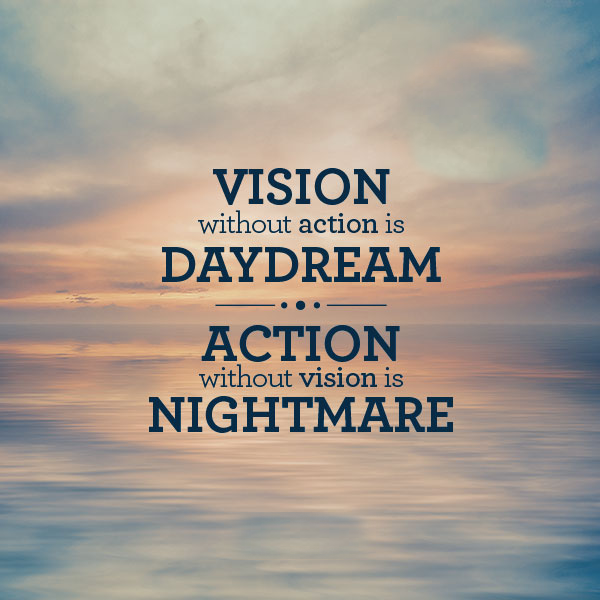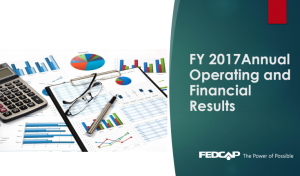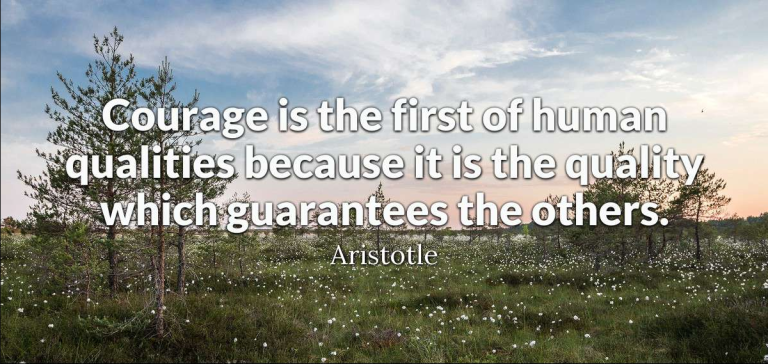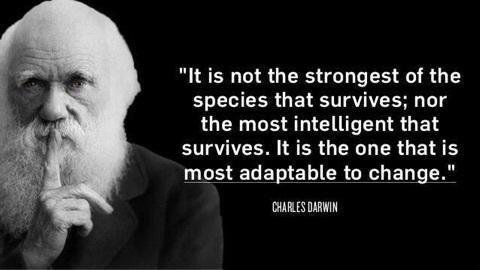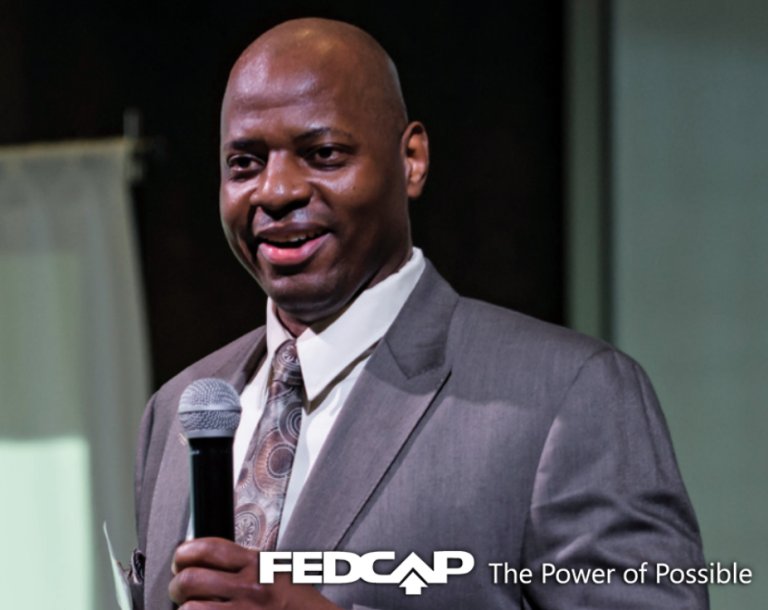—Served more than 182,000 individuals with disabilities and other barriers—
—Achieved 13% revenue growth driven by organic and acquisition initiatives—
—Maintained program expenses at 88% of operating expenses—
—Leveraged positive outcomes in new geographies—
—Acquired Single Stop USA in February 2017—
—Acquired MVLE in November 2017—
NEW YORK, N.Y. (December 13, 2017) – Fedcap, a not-for-profit organization that develops relevant, sustainable solutions for people to overcome barriers through four practice areas: Economic Development, Workforce Development, Educational Services, and Occupational Health, today reported its operating and financial results for its 2017 fiscal year ended September 20, 2017.
Management Comment
“We are pleased to report that 2017 was a year of continued success for Fedcap and the populations we serve,” said Christine McMahon, Fedcap’s Chief Executive Officer. “We delivered services to over 182,000 individuals, significantly more than last year, thanks to effective execution on existing and new, large contracts and Single Stop USA served over 56,000 individuals in the eight months following their combination with Fedcap in February 2017.
“Fedcap has been tapped increasingly by government agencies and private sector participants to evaluate pressing problems, including substance use disorders, re-entry of our veterans to civilian life, and barriers facing children exiting foster care and the formerly incarcerated. In addressing these front-burner issues, we have leveraged the diversified knowledge and talent base that exists across our organization to develop innovative solutions and approaches. This has resulted in a number of significant contract awards and positioned Fedcap to complete strategically important combinations,” Ms. McMahon noted.
2017 Financial and Operating Metrics
Fiscal year 2017 revenues were $257.6 million, an increase of 12.8% over the $228.4 million in revenues reported for FY16. The improvement reflects both organic and acquisition growth, primarily related to the first full year of operations for Breaking the Cycle Project in Maine, and acquisition of Single Stop USA. Importantly, Fedcap has succeeded in significantly diversifying its revenue sources over the last several years, bringing a broader array of services to at-risk populations.
• Economic Development accounted for 40% of Fedcap’s total FY17 revenues, and is comprised of business services operations that directly employ the populations we serve. Revenues were $102.4 million, exceeding $100 million for the second consecutive year. In
2017, Fedcap employed over 1,540 people in these businesses, the majority of whom have disabilities or other barriers. Within this activity, the largest revenue driver was Total Facilities Management, which includes work at such iconic sites as the Statue of Liberty, Ellis Island, New York’s Penn Station, New York City Court Houses, Federal Aviation Administration installations in New Jersey, as well as government and commercial office buildings in New York, New Jersey, Washington, D.C. and Massachusetts. Other components of Economic Development include: Manufacturing, which provides outsourced assembly and production of electronic products for our military, delivered by a workforce comprised of people with disabilities; Business Solutions, which provides all aspects of back office support to government and commercial clients; Catering, which is a growing part of our portfolio, Security Services, Staffing Solutions and Home Health Care, where over 385 Fedcap-trained and licensed professionals provide at-home care to over 800 people.
• Workforce Development also accounted for 40% of total FY17 revenues, or $103.7 million, and represents the area in which Fedcap serves the largest number of individuals through a broad range of services. Workforce Development was the largest area of growth in fiscal 2017, increasing from $80.7 million in 2016 to $103.7 million in 2017, a growth rate of 11.9%. This growth was an equal split of merger and organic growth, with M&A marked by the combination with Single Stop USA in February 2017 and the full contribution of the Maine operations, where we are the sole provider of TANF services through the Breaking The Cycle contract. We provided functional capacity assessments, employment readiness training, vocational evaluations, wellness services, counseling and job placement and job retention services to a diversified group of individuals, each facing significant barriers to employment. We are pleased to report that Fedcap placed over 12,200 individuals in jobs in fiscal 2017 including 491 “ReServists”, retired professionals age 55+ whom we place with organizations to create social impact in education, health care and poverty fighting. Of those placed in employment 19% are employed at over 15.00 per hour.
• Education and Occupational Health together accounted for over $41.4 million in revenues, or 16.1% of FY17 revenue. This year-on-year growth rate of 11.3% was mainly due to the full contribution of the Easter Seals Rhode Island operations and our growing body of work in the areas of Substance Use Disorder and Recovery. We provide a broad array of programs in the areas of behavioral health, evaluation & specialized training, assistance for youth transitioning from foster care, and vocational rehabilitation for individuals with disabilities. Over 2587 individuals advanced grade level, graduated from high school, matriculated to college, graduated from college, or obtained vocational certification through our Career Design School, which offers fully certified training in Culinary Arts, Security, Facilities Management, Hospitality, Data Entry/Digital Imaging and Office Skills.
Fiscal 2017 operating expenses were $257.3 million, 88% of which represented direct program expenses. Fedcap reported an operating profit of $265,982 for the FY 2017 compared to $398,850 in the prior year.
At September 30, 2017, cash and marketable securities were $26.7 million, down slightly from $28.3 million in the prior year, attributable to capital and start up investments.
Key Contract Wins and Strategic Highlights
Fedcap was awarded or is in negotiations on:
• A $63 million, 6-year contract with Maine Department of Health and Human Services to provide assessment, training and job placement services to individuals currently on public assistance;
• A $10 million, 5-year contract with the New York State Office of Temporary and Disability Assistance to expand Supplemental Nutritional Assistance Program outreach and enrollment, awarded to Single Stop USA subsidiary;
• Won a major contract with a large Fortune 500 Company to help them build an Alternative Workforce;
• Acquisition of Single Stop USA, effective February 1, 2017;
• Seacoast Pathways combined with Granite Pathways- a Fedcap subsidiary- that serves as our anchor for the provision of behavioral health services in the New England region;
• ENABLE, a New Jersey-based program serving people with intellectual/developmental disabilities, transitioned its operations into Fedcap effective January 1, 2017;
• Combination agreement with MVLE, a northern Virginia based agency providing services to developmentally disabled individuals and employment through federal custodial and janitorial contracts that will expand our services in the mid-Atlantic region;
• Combination agreement with Easter Seals Central Texas, further expanding our services throughout the United States;
• Combination agreement with Kennedy Scott, based in the U.K. to provide workforce development, furthering our reach internationally.
Summary and Outlook
“Fiscal 2017 results reflected strong demand for Fedcap’s high-impact services and our emphasis on achieving positive and measurable results. We succeeded in substantially expanding the breadth of our operations through the acquisition of Single Stop USA, which provides coordinated access that connects people living in poverty to the resources they need to obtain good jobs, attain higher education and achieve financial self-sufficiency—all through a unique one-stop-shop. Today, the Fedcap family of brands provides a platform of services and solutions that can be effectively deployed to address the needs of our broad-based client populations across the country.
“We were awarded significant contracts in the first half, and notably succeeded in being chosen by Amazon, to assist them in achieving their vision of an Alternative Workforce, comprised of individuals with disabilities and barriers to employment. At the end of our fiscal 2017, Fedcap had a business development pipeline of over $100 million, the highest in our history. This pipeline represents contract and funding opportunities that we are bidding on in order to put into practice solutions that have yielded positive outcomes for at-risk populations.
“Fedcap ended Fiscal 2017 in a strong financial position, and we continue to operate with rigorous financial and risk management controls and procedures to ensure that Fedcap remains a sustainable organization with sufficient infrastructure and resources to effectively serve clients, win federal, state and city-funded contracts and to secure foundation grants. We look forward to continuing our progress in 2018 and to keeping an open dialogue with all of our stakeholders,” Ms. McMahon noted.

